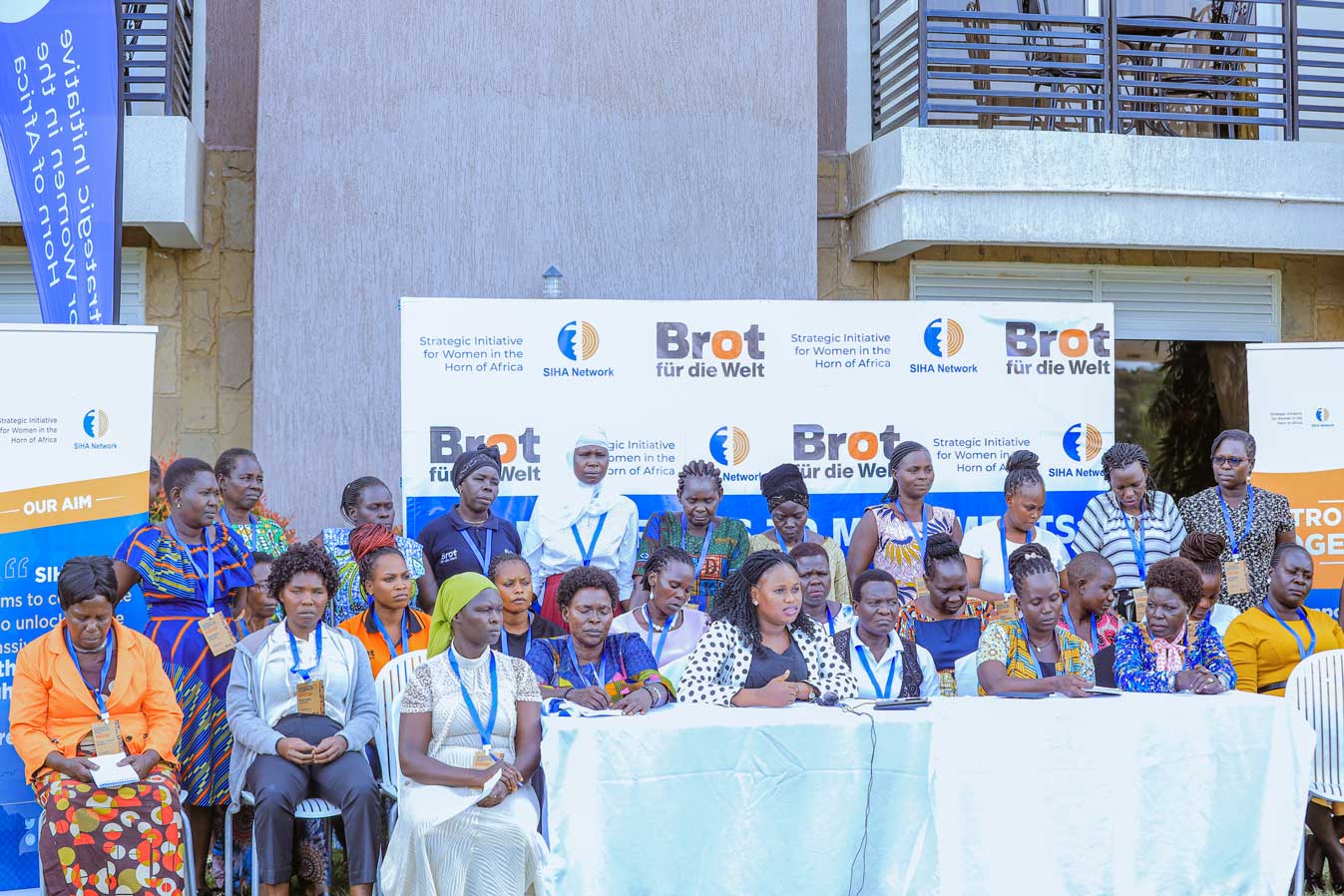
The International Labour Organisation ( ILO) reports that the informal sector contributes to more than 50 % of the Ugandan economy and is responsible for more than 80 % of employment. This means that a majority of the population depends on this sector for their livelihoods and survival, revealing how significant informal workers are to Uganda’s economic growth. Notably, women form the backbone of this sector, comprising 83% of the informal economy.
Despite these contributions to Uganda’s economy in this regard, workers in the informal economy are neither recognized nor sufficiently protected by existing legal and policy frameworks. Women face several vulnerabilities, including poor working conditions, lack of social protection, limited access to information and credit, inadequate wages, harassment, and undue exposure to occupational hazards and illnesses, among other concerns.
Following a convening organized by the Strategic Initiative for Women in the Horn of Africa (SIHA) Network in October 2024, we, the women street and market vendors of Arua and Kampala, come together to advocate for a stronger national legal and policy framework, addressing the grievances highlighted.
Though this is a work in progress, we do commend the Government of Uganda’s efforts towards addressing these issues. This includes passing the Market Act in 2023, which seeks to address the gaps in market management and limited consumer protection. We further recognize the ratification of ILO Convention 190 by the Government on August 7, 2023, which offers a transformative, clear, and binding framework for recognizing the rights of all workers to live in a world free from violence and harassment.
Convention 190 boldly prescribes that ‘gender-based discrimination will no longer be tolerated in the “world of work.” This phrase acknowledges the broad nature of where and how work may involve instances of violence and harassment, which affect workers like us.
This ratification was a culmination of years of organizing by market women, labor rights, and women’s movements in Uganda, addressing gender-based violence and harassment at work. It further represents the power of women workers from across regions, sectors, and different walks of life to come together to advocate for their rights within the world of work.
However, this instrument has yet to be domesticated and effectively implemented by the government, and more is yet to be done. We raise our voices on how multiple crises, from the perspectives of the economy, health, food, and climate, are disproportionately affecting us and other women in informal workplaces. These are worsening the quality of life experienced by market women and fueling gender inequalities.
Gender-based harassment and violence has many consequences for women. For women market and street vendors, it hinders us from fully participating in the economy, in leadership and decision-making, and restricts equitable access to local Government tenders. It further limits access to Government programmes like the Parish Development Model (PDM), inhibits access and ownership of property and worsens mental health issues in the workplace .
We, therefore, call upon the different stakeholders to support the implementation of Convention 190 and to strengthen the legal, and policy framework related to women as follows;
To the Government
- Increase investment in the implementation of Convention 190 by passing the Employment (Sexual Harassment) Regulations and other policies that strive to address many of the challenges market women and other informal workers face.
- Fast-track the adoption of laws and regulations requiring employers to take appropriate steps commensurate with their degree of control to prevent violence and harassment in the workplace. This includes preventing gender-based violence and harassment, and to, as far as practicable, adopt workplace policies on violence and harassment, risk assessment, information and training.
The Local Government Ministry
- Ensure the implementation of the Market Act from a gender lens in order to guard against the law reinforcing inequalities and challenges faced by women in the markets. We seek Local Government’s specific attention to Articles 4 to 15 of the Act.
Civil Society Organizations
- Support women workers, especially those in the informal sector, by enhancing their capacity to engage with and understand relevant laws protecting their rights in the workplace to ensure that they can be used as tools to demand accountability.
International Labour Organization
- Offer tailored technical support to member states in domesticating Convention 190 into national laws and policies.
- Monitor compliance with this Convention through reporting mechanisms, encouraging Uganda to submit regular reports on its progress.
NOTE: This Press Statement was an outcome of an In-country Learning and Exchange Event for Women Market and Street Vendors (WMSVs) from the Central and West Nile regions in Uganda that took place from September 25th to 26th, 2024, in Arua City.
